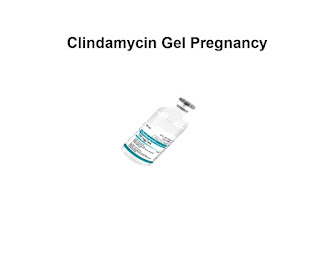Meningococcal Vaccine: Protection, Risk, Schedule
IRS Guidance Expands List Of Preventive Care Benefits Under HDHPs
SummaryThe IRS recently issued Notices 2024-71 and 2024-75, which expand the list of "preventive care" benefits permitted to be provided by a high deductible health plan (HDHP) without a deductible and the list of benefits considered "medical care expenses" under group health plans.
The UpshotEmployers that offer health benefits, and particularly those that sponsor an HDHP, health savings account (HSA), health flexible spending arrangement (FSA) or health reimbursement arrangement (HRA) should consider the extent to which these products and services will be covered and incorporate any updates into plan documents, participant communications, and any related systems.
On October 17, 2024, the Internal Revenue Service (IRS) issued Notices 2024-71 and 2024-75, which expand the list of "preventive care" benefits permitted to be provided by a high deductible health plan (HDHP) without a deductible and the list of benefits considered "medical care expenses" under group health plans.
As background, an individual is eligible to contribute to a tax-favored HSA if the individual is covered under an HDHP, with no disqualifying health coverage. HSA-compatible HDHPs are not permitted to provide benefits until the minimum deductible for that year is satisfied, other than in a few limited situations. One of the key exceptions to this rule is Section 223(c)(2)(C) of the Internal Revenue Code (Code), which allows plans to provide preventive care before the individual meets the minimum deductible. Over the years, the IRS has issued guidance to clarify what does and does not constitute preventive care. Notices 2024-75 and 2024-71 expand on that guidance.
IRS Notice 2024-75 expands the list of preventive care benefits that can be offered on a first-dollar basis without disqualifying HSA contributions:
The IRS also issued Notice 2024-71, which provides a safe harbor that treats amounts paid for condoms as amounts paid for medical care under Section 213(d) of the Code. As a result, amounts paid for condoms are eligible to be paid or reimbursed under a health flexible spending account (FSA), health reimbursement arrangement (HRA), or HSA.
The Biden Administration followed this guidance with a proposed regulation that would require non-grandfathered group health plans to cover OTC contraceptives - including oral contraceptives, condoms, and emergency contraception - without cost-sharing and without a prescription. As background, the Affordable Care Act's (ACA) preventive care mandate requires non-grandfathered group health plans to cover, without participant cost-sharing, the following:
Currently, the ACA mandates cost-free coverage of OTC contraceptives only if they are prescribed by a health care provider. The proposed rule, if finalized, would expand the ACA mandate to include OTC contraceptives without a prescription. The recent election results make it very uncertain whether these proposed regulations will become final.
The Biden Administration also issued a new set of FAQs on how to address certain coding requirements under the preventive care rules and reminding health plan sponsors that their plans need to provide first dollar coverage, without cost-sharing, for an expanded set of HIV-preventive medications.
[View source.]
What Is The Earliest Age To Qualify For Medicaid? Every Age Requirement For Medicaid To Know
Medicaid is a critical safety net for millions of Americans, providing health coverage to low-income individuals and families.
While income is the primary factor for Medicaid eligibility, age and specific life circumstances play significant roles in determining who qualifies for the program.
Medicaid offers health coverage to individuals at every stage of life, starting with children. For those under 21, Medicaid includes the Early and Periodic Screening, Diagnostic, and Treatment (EPSDT) program.
This federally mandated benefit ensures comprehensive care, including preventive services, routine check-ups, and necessary medical treatments. Families with low income can enroll their children in Medicaid from birth, often through state-based Children's Health Insurance Program (CHIP) extensions.
Pregnant women also receive special consideration under Medicaid. Many states offer expanded coverage for prenatal, delivery, and postpartum services, with eligibility often based on higher income thresholds compared to non-pregnant adults.
For adults under 65, Medicaid eligibility varies significantly by state. The Affordable Care Act (ACA) allowed states to expand Medicaid to cover low-income adults earning up to 138 percent of the federal poverty level (FPL).
This expansion includes adults without dependent children, a group traditionally excluded from Medicaid coverage in the past. However, not all states adopted this expansion, meaning eligibility requirements can differ widely across the U.S.
Individuals aged 65 and older can qualify for Medicaid as well, particularly those who need assistance with long-term care. Seniors often combine Medicaid with Medicare to cover services like nursing home care, which Medicare typically does not fund. Eligibility for seniors depends on both income and asset limits, which vary by state.
Medicaid also serves individuals with disabilities, regardless of age. Those who meet Social Security's definition of disability and have limited financial resources are generally eligible for Medicaid support, including specialized services and therapies.
Hence, eligibility requirements are nuanced, shaped by age, income, and state-level policies. For detailed information tailored to individual circumstances, consulting the local Medicaid office is recommended.



Comments
Post a Comment